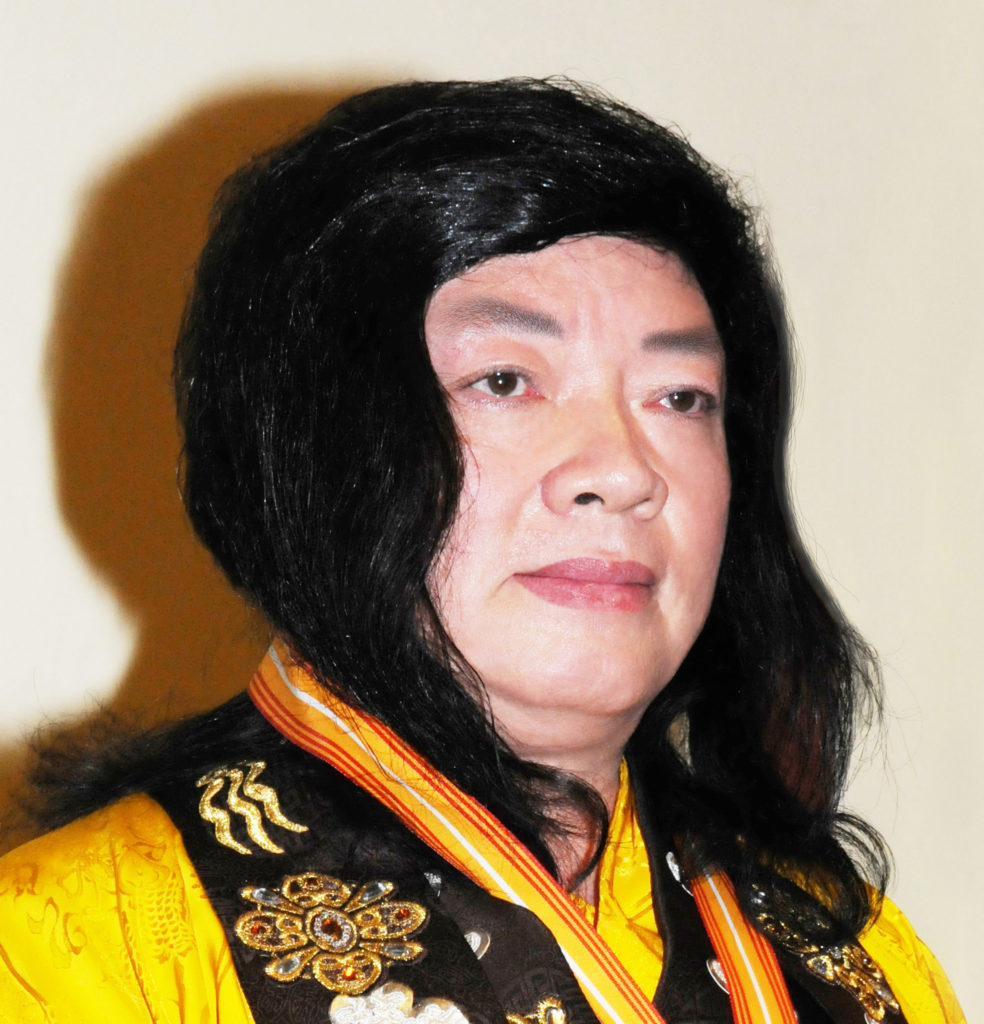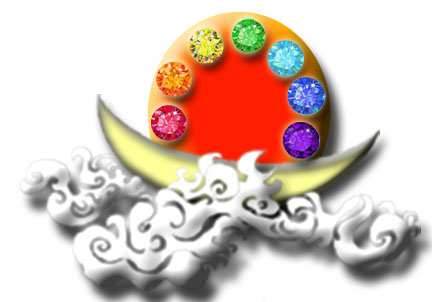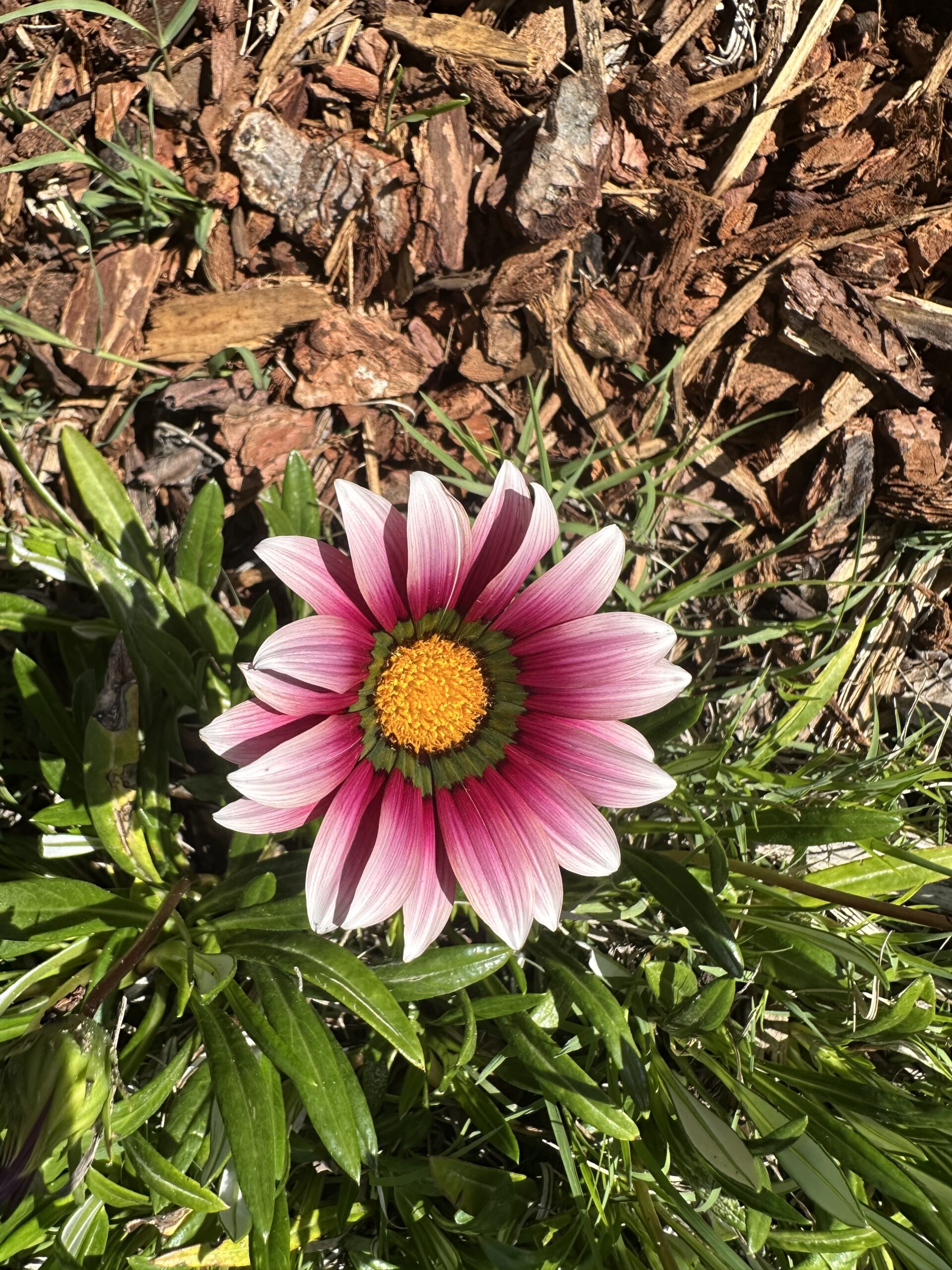
If you thought what I read this morning didn’t quite match what is printed below, you are right as I picked up an earlier translation to read and did not realize that until almost the end. Sorry, what is printed below is the most recent translation that we are using. I do not believe that there was any differences in content, but there were several changes in style.
The last time we did this, I used a more recent translation of the “128 Views” for our review and introspection from what was used in the Sunday afternoon classes. These summary statements are what is in the most recent translation I have of the Supreme and Unsurpassable Mahamudra of Liberation (SAUMOL). There are also instructions on how you should examine yourself to see if you are holding any of these evil or erroneous views and what you should do to repent as well as what will happen to you if you continue acknowledging these views. It also states that you should recite them every day until you are able to conversantly recite them. When you can do that, you should still constantly introspect and observe your thoughts and once every month you must recite the text of these views and examine yourself against them. We will try to hold one Sunday morning session each month to do this as a sangha.
In addition, you should read a discourse given by H.H. Dorje Chang Buddha on these views so that you can better understand their meaning and implications of holding them. A preliminary translation of that discourse has been posted that contains both the translations of the summaries for that discourse and the one that we used this morning. CLICK for the complete discourse that offers an explanation of these views and more information on this discourse that was given in 2009. Please remember that both of the translations of these lists are only preliminary and both probably contain errors. They have not been approved or authenticated. They are both provided to help understand the translation and until such time as we do have an official translation.
We will try to listen to this part of the SAUMOL once a month.
The following is the new translation of the summary of these views that is included in the most recent translation of the SAUMOL.
128 Evil and Erroneous Views
38 Evil Views
The evil views are grossly summarized as follows: (While reciting these views, contemplate your own words, deeds, and understanding, and check them against these views.)
- Acknowledging that ghosts and gods are one’s liberation masters:
- Acknowledging that attaining supernormal powers is the purpose of attaining accomplishment:
- Acknowledging that one may violate the precepts of the three vehicles:
- Acknowledging that one may forsake bodhicitta in one’s cultivation:
- Acknowledging that one need not abide by all of the precepts:
- Acknowledging that one may falsely claim to be a Buddha or Bodhisattva for the sake of spreading the dharma:
- Acknowledging the eternalistic view that phenomena truly exist and are not illusory:
- Acknowledging that emptiness exists separate and independent from the mundane:
- Acknowledging that one can attain liberation merely by practicing a dharma and without cultivating oneself:
- Acknowledging that the dharmakaya is an entity with form:
- Acknowledging that by relying on the power of a Buddha, one can do bad things yet be free of sin:
- Acknowledging that cutting off self-attachment entails cutting off feelings for one’s parents:
- Acknowledging that doing good deeds alone fulfills the requisite condition to attain holy nirvana:
- Acknowledging as a Bodhisattva one whose mind and conduct are without greatly compassionate bodhicitta:
- Acknowledging it is acceptable not to have a clear belief in cause and effect yet have a superstitious belief in fortune-telling and luck:
- Acknowledging teachings on the doctrine of emptiness yet deviating from the continual practice of true cultivation:
- Acknowledging that transmigration within the six realms is a legend that is untrue:
- Acknowledging that famous lamas and famous monks are definitely people of great holiness and virtue:
- Acknowledging that personal interests are more important than the Buddha-dharma:
- Acknowledging that it is not a sin to kill a living being so long as one chants the mantra to raise the consciousness of the deceased:
- Acknowledging that one may go against matters decided by one’s root master of holy realization and bodhicitta:
- Acknowledging it is acceptable for one to show reverence to the Buddhas and one’s master but not show filial respect and obedience toward one’s parents:
- Acknowledging position and status rather than the definitive truth of the dharma:
- Acknowledging that living beings came from the devolvement of Buddhas:
- Acknowledging it is acceptable to mix Buddha-dharma and non-Buddhist methods in one’s practice:
- Acknowledging that the law of cause and effect is illusory and unreal:
- Acknowledging that strange, heretically induced phenomena are manifestations of supernormal powers derived from Buddha-dharma:
- Acknowledging that a master who has learned a great dharma must be one of great holiness:
- Acknowledging that one may put off cultivating oneself until tomorrow:
- Acknowledging as a master one who speaks falsely and deceives living beings:
- Acknowledging that one who intentionally lies to one’s root master can experience beneficial effects from one’s practice:
- Acknowledging as a person of supernormal powers one whose mind and conduct are devoid of bodhicitta:
- Acknowledging as dharma teachers, rinpoches, and laypersons those who do not follow the precepts:
- Acknowledging that helping an evil master do evil is a dharma-protecting practice:
- Acknowledging it is acceptable to rely upon a master who is mistaken and confused about and does not understand the Buddha-dharma rather than seek a good master:
- Acknowledging it is acceptable to perform acts of giving with conditions, calculation, and attachment:
- Acknowledging it is acceptable not to repent openly for having mistakenly explained the teachings of the sutras:
- Acknowledging as legitimate one who proclaims oneself to be a Buddha or Bodhisattva to one’s disciples:
Whoever does not deeply repent and correct themselves after becoming aware that they have violated one of the above evil views will experience no beneficial effects from any dharma they practice, no matter how high their status may be. They all the more will have no realization powers. They will forever remain in samsara. Those with serious violations will definitely descend into the three lower realms. Those who associate with such a person and see that he has not repented will likewise be tainted by the dark karma of his sins if they do not leave him.
90 Erroneous Views
The erroneous views are grossly summarized as follows:
- Acknowledging the Shifting the Mind Practice as a meditation practice:
- Acknowledging sitting meditation as cultivating oneself:
- Acknowledging that forming mudras and chanting mantras is doing a dharma practice:
- Acknowledging that doing a dharma practice is cultivating oneself:
- Acknowledging that studying the teachings of the sutras is learning from Buddha:
- Acknowledging that one who has fallen into evil or erroneous views can still successfully cultivate realization powers:
- Acknowledging that a master may make unreasonable demands upon disciples:
- Acknowledging the existence of evil doctrines but not informing living beings about them:
- Acknowledging that one’s illness can be cured by requesting empowerment but without cultivating oneself:
- Acknowledging that Buddhist pills can cure all illnesses:
- Acknowledging that one may eat meat after one is tonsured and becomes a monastic:
- Acknowledging it is acceptable not to practice bodhicitta after one receives an initiation in a great dharma:
- Acknowledging it is acceptable not to practice the six paramitas:
- Acknowledging that there exists a highest dharma that corresponds to all living beings:
- Acknowledging the validity of initiations remotely controlled from another place:
- Acknowledging that if one merely does good deeds but does not do a dharma practice, one can still attain liberation:
- Acknowledging that cutting off self-attachment entails not caring about the sufferings of others:
- Acknowledging that realizing emptiness is unrelated to the extent of one’s virtue and meritorious resources:
- Acknowledging that holders of a legitimate lineage are all upright, great masters:
- Acknowledging it is acceptable to perform an initiation in a Buddha-dharma whenever money is given:
- Acknowledging that the successor to the highest dharma position in a large temple is definitely a holy person:
- Acknowledging that small temples do not have eminent monastics:
- Acknowledging that after one has illuminated one’s mind and seen one’s original nature, one may slack off in one’s practice:
- Acknowledging that one may postpone learning from Buddha until one is less busy with worldly matters:
- Acknowledging that having numerous disciples makes one a holy and virtuous person:
- Acknowledging someone without holy realization or bodhicitta as a true holy person:
- Acknowledging a terma as a holy object when it is not a terma in the definitive sense:
- Acknowledging that one may intentionally deny what one has said or done:
- Acknowledging that one may intentionally conceal matters from one’s guru of great holiness and virtue:
- Acknowledging that by possessing one of the five great pills, such as a vajra pill, one can attain accomplishment:
- Acknowledging that you yourself do not have the seed to become a Buddha because your karmic forces are heavy:
- Acknowledging that living beings in other realms do not have Buddha-nature:
- Acknowledging that as long as one has dharma, one will attain realization powers:
- Acknowledging that one may make mistakes without immediately correcting oneself:
- Acknowledging that one who does good deeds and gives to others is definitely an eminent monastic or person of great virtue:
- Acknowledging that one may alter a dharma manual, mudra, or mantra:
- Acknowledging that Bodhisattvas do not have to acquire the five vidyas:
- Acknowledging that a master may demand and take property from disciples:
- Acknowledging that one may use one’s position of lineage holder as a device to obtain offerings from disciples:
- Acknowledging as a virtuous person and paragon of holiness one who praises oneself and shows off:
- Acknowledging that sons and daughters need not kindly guide their parents toward correct views:
- Acknowledging the false claim that a mandala is a holy mandala when it was not made with colored sand that penetrated through a boulder:
- Acknowledging that the protective powers of great Bodhisattvas are not as strong as those of mountain deities:
- Acknowledging pills made of ordinary medicine as authentic holy nectar:
- Acknowledging that the light one sees when one’s eyes are closed is a manifestation of the power of Buddha-dharma:
- Acknowledging those who speak of their mysterious wonders and preach hollow dharma theories without testing their vajra powers:
- Acknowledging that one who has not received an initiation cannot attain accomplishment through learning dharma and cultivation:
- Acknowledging as a vajra bodhi initiation master one who does not make the prediction[s] associated with that initiation:
- Acknowledging that taking refuge and receiving precepts is the refuge state:
- Acknowledging an unreal and illusory image, sound, or form as a holy miracle:
- Acknowledging that esoteric dharma is the highest dharma:
- Acknowledging that exoteric dharma is the lowest dharma:
- Acknowledging that there is no need for sick people to take medicine:
- Acknowledging that the only way to ascend to the pure land is by chanting the name of Amitabha Buddha:
- Acknowledging that only through the Zen sect can one illuminate one’s mind and see one’s original nature:
- Acknowledging as a crown opening the insertion of an auspicious straw into the top of the head without seeing real fruits of the path:
- Acknowledging that after one has received dharma and attained realization, one need not make offerings to one master:
- Acknowledging one of insignificant achievements in the five vidyas as a person of great holiness and virtue:
- Acknowledging one with the mind and conduct of an icchantika as an eminent monastic:
- Acknowledging that one who has illuminated one’s mind and seen one’s original nature through experiential realization does not have to be respectful to Buddhas and Bodhisattvas and make offerings to Their images:
- Acknowledging that great Bodhisattvas do not get sick:
- Acknowledging that disciples may be seated higher than the seat of their master of holy virtue:
- Acknowledging that Buddhist texts and images of Buddhas may be placed at a height lower than the seat of an eminent monastic or person of great virtue:
- Acknowledging that a person of holy virtue need not respectfully make offerings to local deities and land deities:
- Acknowledging that one whose status is that of a Buddha or Bodhisattva need not worship images of holy beings upon entering a temple:
- Acknowledging that certain living beings do not have Buddha-nature:
- Acknowledging a prediction that a great global disaster will occur in a particular year:
- Acknowledging that those who wear the clothing of a monastic or rinpoche are all holy people:
- Acknowledging that one who expounds dharma in a gentle voice is definitely a Bodhisattva:
- Acknowledging that using the vajra voice to expound dharma and remove karmic hindrances is not compassionate:
- Acknowledging that one who uses vajra bodhi conduct to benefit others is not one of holy virtue:
- Acknowledging a conceited, arrogant, and overbearing person as a vajra master:
- Acknowledging that following the Fifty Stanzas of Guru Devotion requires one to pay respect to a fake holy master:
- Acknowledging acceptance of a master who has forsaken bodhicitta:
- Acknowledging that one who holds a recognition certificate issued by a great dharma king is definitely an authentic holy person:
- Acknowledging that one must not raise the consciousness of a vicious ghost to a higher realm of existence:
- Acknowledging that demons are not to be edified but must be punished or killed:
- Acknowledging that one need not make food offerings to yakshas and Hariti:
- Acknowledging that people must pay money in exchange for learning dharma or listening to dharma:
- Acknowledging that listeners of the dharma may treat audio dharma recordings with disdain:
- Acknowledging that a master is able to transfer part of his lifespan to a disciple:
- Acknowledging that one who received teachings at a famous temple is definitely an eminent monastic:
- Acknowledging that one who learned under many masters is definitely a holy person:
- Acknowledging that the spiritual capacity of females is not as good as that of males:
- Acknowledging that small living beings are inferior to large living beings:
- Acknowledging that one may engage in the hollow practice of chanting the text of a sutra without understanding its meaning:
- Acknowledging that one may use the pretext of building a temple, building a stupa, or conducting a dharma assembly to secretly accumulate money for oneself:
- Acknowledging that one may utilize charitable or disaster relief funds for one’s own greedy purposes:
- Acknowledging that cultivating oneself and learning from Buddha require giving up work:
- Acknowledging that after taking refuge, one indeed is a Buddhist:
Having respectfully recited these views, I carefully examine myself. If I acknowledge any of the above evil views or erroneous views, I immediately understand clearly that I have fallen onto an evil path and side path. I should instantly turn back and deeply repent. Otherwise, if I do not repent from having fallen into an evil view or erroneous view due to a certain thought, it is very possible that at the end of my life I will descend into one of the three evil realms. From then on, I will be far away from the gate to the true dharma and will forever be cut off from the path to liberation and holiness. Just by falling into two or three of the erroneous views, my practice of any Buddha-dharma will be ineffective, and I will not see any trace of achievement in realization powers. When I find no mistakes after introspecting, I should constantly pay attention to whether or not my mental functions are locked onto bodhicitta when speaking and acting. If I am acting contrary to bodhicitta, I must immediately repent and begin the self-other exchange practice. (After I can conversantly recite the evil views and erroneous views, I do not have to recite them every day. However, I should constantly introspect and observe my thoughts. Once every month, I must recite the text of these views and examine myself against them.)





Question rather than comment- in the previous iterations of the 128 E&E Views there is a lengthy explanation from HH the Buddha. Is the paragraph above meant to replace that?
No. Thanks for the question. I see that there was an extra line left in the revised text that I removed. I also tried to better explain the two versions. What is given above is taken directly from the latest translation of the SAUMOL while the longer text you refer to was part of the discourse given earlier by the Buddha Master on the 128 views. You need to read both and realize that as we gain more insight we are usually better able to translate the text. The person who was the primary translator of both the discourse and the latest version of the SAUMOL text felt the summaries above were superior to his earlier translation.